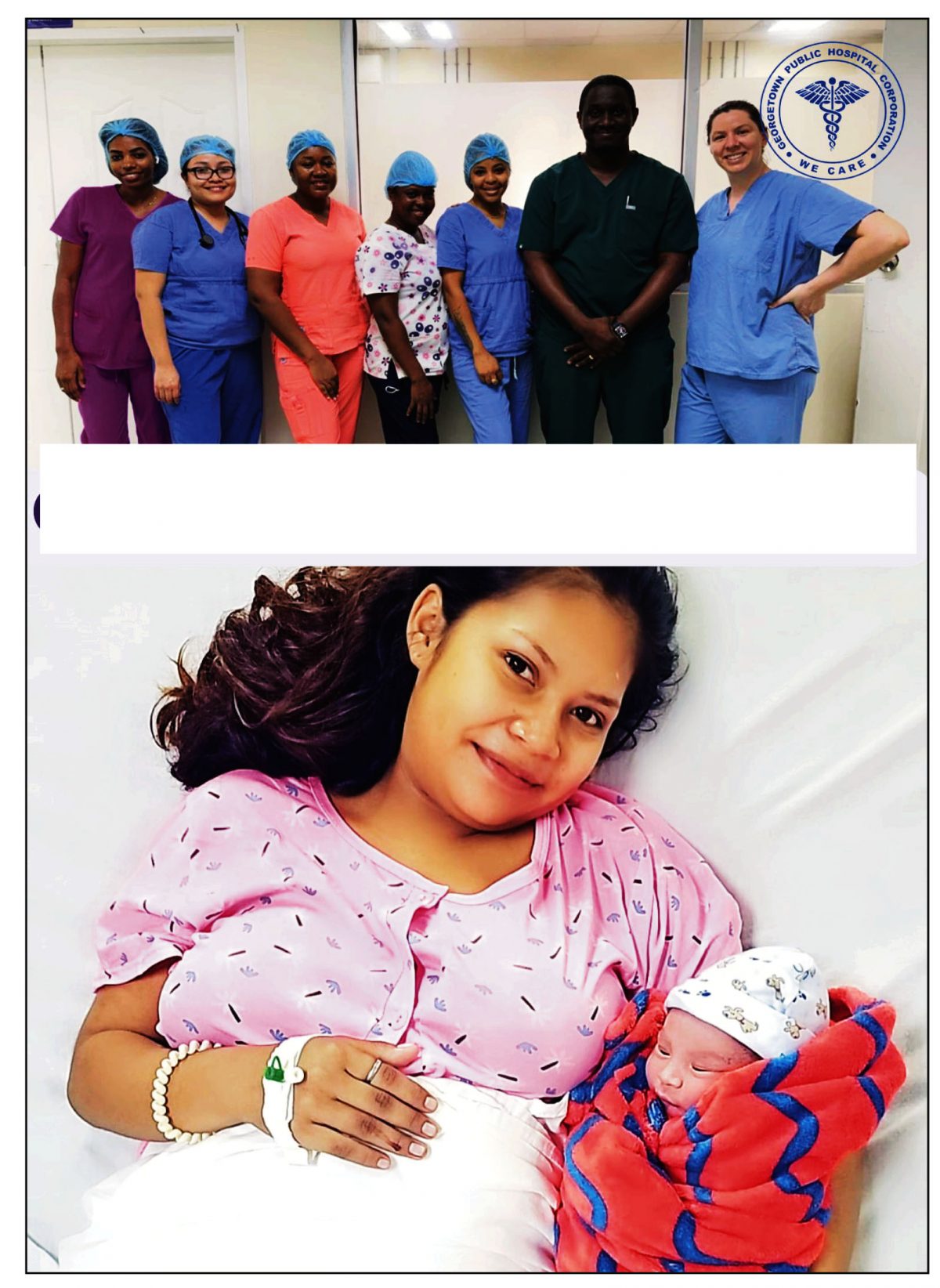The Obstetrics & Gynae-cology Department of the Georgetown Public Hospi-tal (GPH) chalked up a victory when they averted what could have been a medical tragedy and in the process, preserved the life of a baby during a delivery.
A release from the GPH yesterday said that during a recent delivery, there occurred a case of umbilical cord prolapse, a rare and potentially life-threatening complication.
It explained that umbilical cord prolapse is a rare occurrence, affecting approximately 0.1-0.6 per cent of pregnancies. It happens when the amniotic sac ruptures before the baby’s head engages in the pelvis, allowing the umbilical cord to slip into the birth canal. Such a situation demands immediate medical attention due to the risk of foetal distress and oxygen deprivation.
As such, the release said, the key to successfully managing umbilical cord prolapse lies in the rapid recognition and response of the medical team. Fortunately, at GPH, it said that the obstetricians, midwives, and nurses are highly trained to identify signs such as the sudden disappearance of the baby’s heartbeat on the foetal monitor or the presence of a pulsating cord in the vagina. Should such an event occur, the team initiates an emergency protocol, employing various interventions to alleviate pressure on the cord and ensure the baby’s well-being.
The hospital related that during the patient’s labour, Dr Arona Matadeen, an obstetrician & gynaecologist, detected the umbilical cord prolapse. The obstetric team, led by nurses Punch and LaRose, swiftly prepared the patient for an emergency caesarean section. Within eight minutes from diagnosis to delivery, Dr Ogbeiwi Owen and the operating theatre professionals successfully delivered a healthy baby boy, with an Apgar score of 9,10 and weighing 2560 grams (5.6 lbs).
Dr Derron Moonsammy, reflecting on the intense moment, recalled it as the “most adrenalized experience of his life.” Thankfully, the efficient collaboration of the medical team ensured both the patient and her baby emerged from the experience unharmed.
The release acknowledged that while umbilical cord prolapse is “undoubtedly a frightening complication,” it assured that timely recognition, expert medical intervention, and a supportive healthcare team can lead to successful outcomes.
GPH expressed its gratitude to the medical team that attended to the patient and her baby boy: Dr Arona Matadeen, Dr. Ogbeiwi Owen, Dr. Derron Moonsammy, Nurse Punch, Nurse LaRose, Nurse Lynton, Dr. Roberts, and Dr Cano, while reassuring the public that the birth of a child can be a joyous and safe experience.





